
Majestic Vosges Mountains: A Natural Wonderland in France
The Vosges Mountains are a stunning range situated in northeastern France. This picturesque region is known for its rolling hills, dense forests, and crystal-clear lakes. The area is a paradise for outdoor enthusiasts, offering numerous hiking trails, mountain biking paths, and skiing opportunities in the winter. Nature lovers will be captivated by the rich biodiversity found within the Vosges. The regional nature park is home to various species of flora and fauna, making it an ideal spot for birdwatching and wildlife photography. The scenic beauty of the Vosges is enhanced by charming villages and historical sites, such as the medieval castles that dot the landscape. For those seeking relaxation, the Vosges offer several thermal spas known for their healing waters. Visitors can unwind in the tranquil settings of towns like Vittel and Contrexéville. The local cuisine is another highlight, with traditional dishes like quiche Lorraine and Munster cheese providing a taste of the region's culinary heritage.
Local tips in Vosges Mountains
- Visit in autumn for stunning fall foliage.
- Bring sturdy hiking boots for the trails.
- Don't miss tasting local specialties like Munster cheese.
- Book spa treatments in advance, especially during peak seasons.
- Explore the lesser-known medieval castles for a unique experience.
Majestic Vosges Mountains: A Natural Wonderland in France
The Vosges Mountains are a stunning range situated in northeastern France. This picturesque region is known for its rolling hills, dense forests, and crystal-clear lakes. The area is a paradise for outdoor enthusiasts, offering numerous hiking trails, mountain biking paths, and skiing opportunities in the winter. Nature lovers will be captivated by the rich biodiversity found within the Vosges. The regional nature park is home to various species of flora and fauna, making it an ideal spot for birdwatching and wildlife photography. The scenic beauty of the Vosges is enhanced by charming villages and historical sites, such as the medieval castles that dot the landscape. For those seeking relaxation, the Vosges offer several thermal spas known for their healing waters. Visitors can unwind in the tranquil settings of towns like Vittel and Contrexéville. The local cuisine is another highlight, with traditional dishes like quiche Lorraine and Munster cheese providing a taste of the region's culinary heritage.
When is the best time to go to Vosges Mountains?
Iconic landmarks you can’t miss
La montagne des Lamas
Experience the charm of friendly llamas in the breathtaking Vosges mountains at La Montagne des Lamas, a unique attraction for all ages.
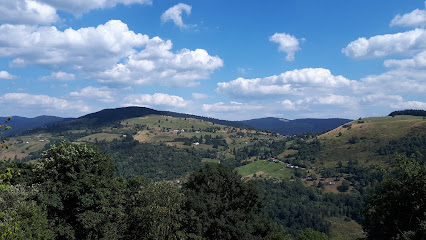
Vosges
Explore the stunning Vosges Mountains in France, where breathtaking landscapes, charming villages, and outdoor adventures await every traveler.
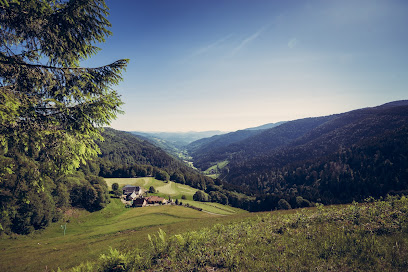
Unmissable attractions to see
Parc naturel régional des Ballons des Vosges
Discover the Ballons des Vosges Regional Natural Park: a haven of natural beauty, outdoor adventures, and rich cultural heritage in northeastern France.
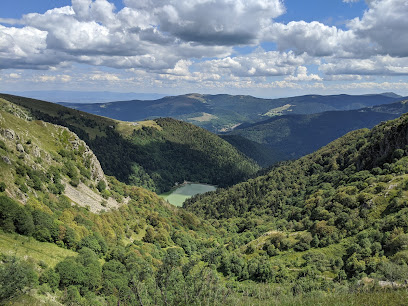
Château de Kaysersberg
Explore the ruins of Château de Kaysersberg, an imperial castle with panoramic views of the Alsace region and its vineyards.
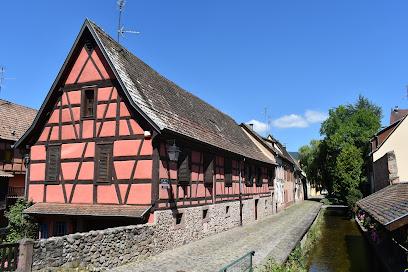
Parc de Wesserling
Explore Alsace's Parc de Wesserling: Where textile history meets stunning gardens and captivating cultural events.
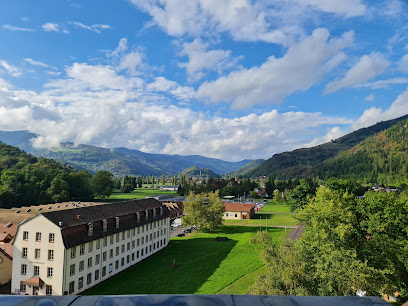
La montagne des Lamas
Meet gentle llamas and alpacas amidst stunning mountain scenery at this unique Vosges attraction. A delightful experience for all ages.
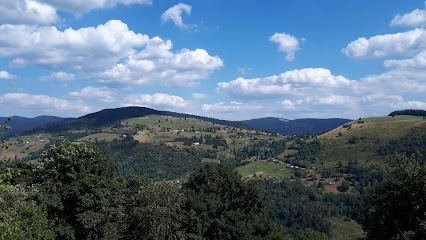
Tourist Office of Colmar
Explore the enchanting town of Colmar from the Tourist Office, your gateway to local attractions, culture, and hidden gems.
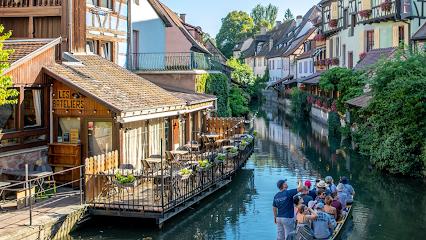
Luge D'été Col De la Schlucht
Experience high-speed thrills on the summer toboggan run at Col de la Schlucht, offering breathtaking views and unforgettable moments in the Vosges!
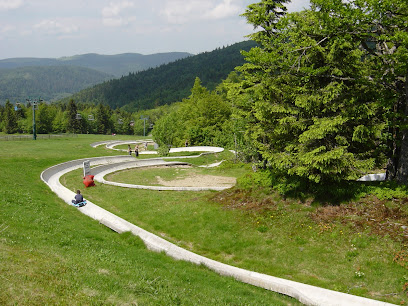
TREE ADVENTURE PARK
Experience high-flying thrills at Kruth's Tree Adventure Park: treetop courses, zip lines, and outdoor fun for all ages by the scenic Kruth Lake.
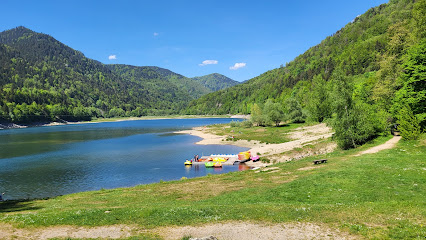
Cascade de Mérelle
Discover the serene beauty of Cascade de Mérelle, a charming waterfall near Gérardmer offering a peaceful escape into nature.
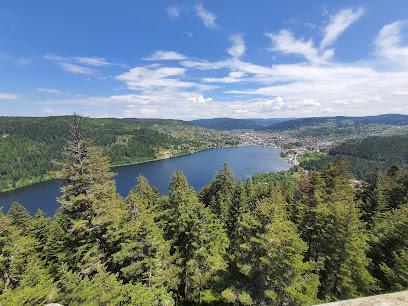
Acro-Sphère
Experience thrilling outdoor adventures and breathtaking landscapes at Acro-Sphère, a premier amusement park in the heart of Gérardmer, Vosges.
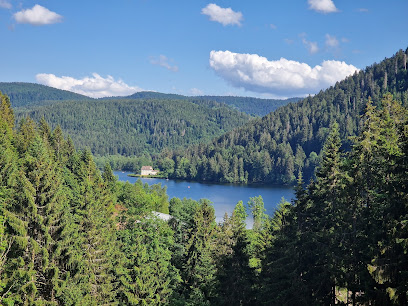
Sentier Des Roches
Hike the thrilling Sentier des Roches in the Vosges Mountains for breathtaking views and a challenging cliffside experience.
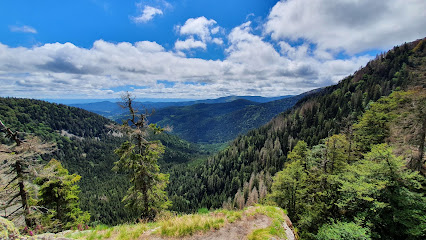
Gorges De Crosery
Discover the Gorges de Crosery: a picturesque natural site in the Vosges, perfect for hiking, swimming, and enjoying the beauty of the French countryside.
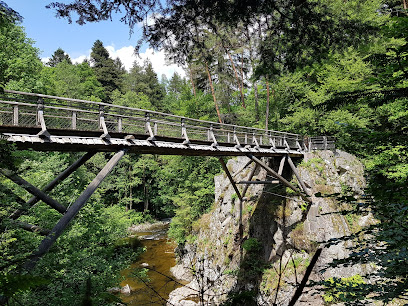
Col du petit Ballon
Discover the beauty of Col du Petit Ballon, a stunning mountain pass in the Vosges, ideal for hiking, nature, and breathtaking landscapes.
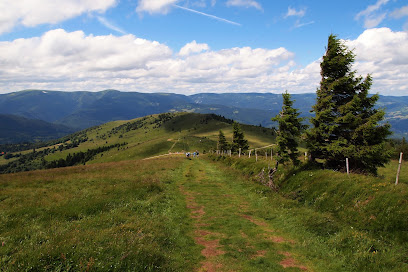
Cascade du Heidenbad
Explore the breathtaking Cascade du Heidenbad, a hidden gem in Wildenstein, France, offering natural beauty and serene landscapes for all nature lovers.
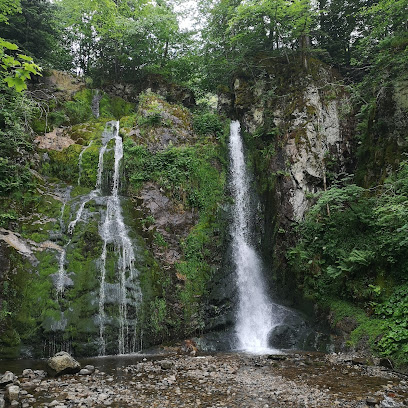
Abbey of Murbach
Discover the Romanesque beauty and rich history of the Abbey of Murbach, a former Benedictine monastery nestled in the scenic Alsace region.
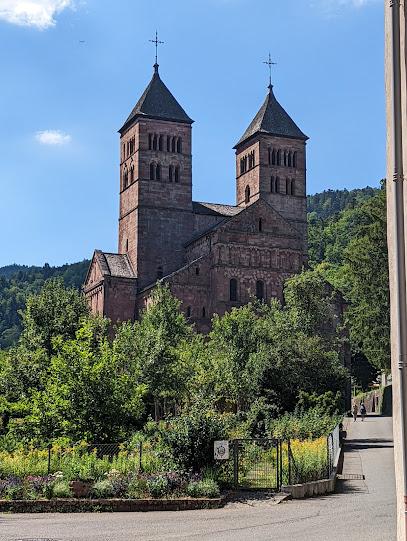
The Garden Berchigranges
Discover a mountain paradise in France's Vosges: a stunning botanical garden with diverse flora, tranquil water features, and artistic design.
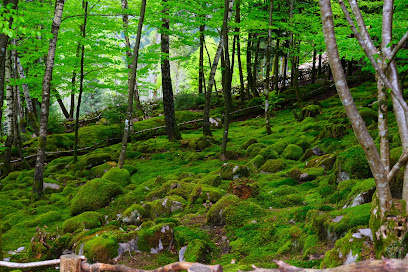
Essential places to dine
Auberge du Pied du Hohneck
Experience authentic French cuisine amidst breathtaking Vosges mountain views at Auberge du Pied du Hohneck.
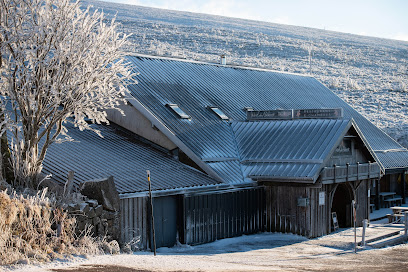
Auberge du Pont Jean D'Zoure
Experience authentic French cuisine amidst the stunning scenery of La Bresse at Auberge du Pont Jean D'Zoure.
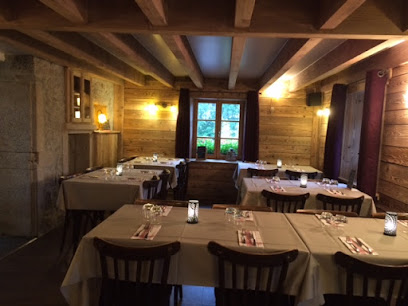
anico
Experience exquisite Haute French cuisine at Anico in La Bresse - where every meal is a celebration of flavors.
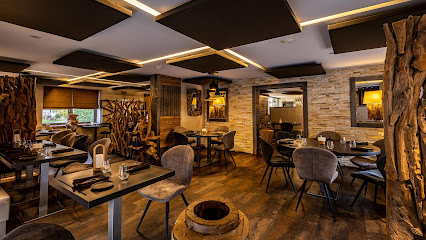
Hotel Restaurant du Sommet du Hohneck
Experience exquisite French cuisine and breathtaking mountain views at Hotel Restaurant du Sommet du Hohneck in Gérardmer.
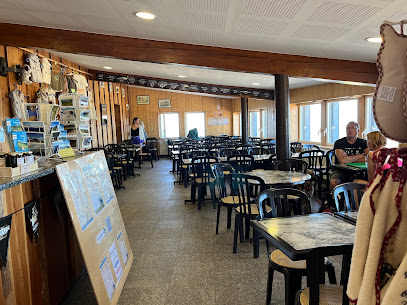
Auberge des Jonquilles
Experience authentic French cuisine at Auberge des Jonquilles in La Bresse - where tradition meets exquisite flavors amidst breathtaking scenery.
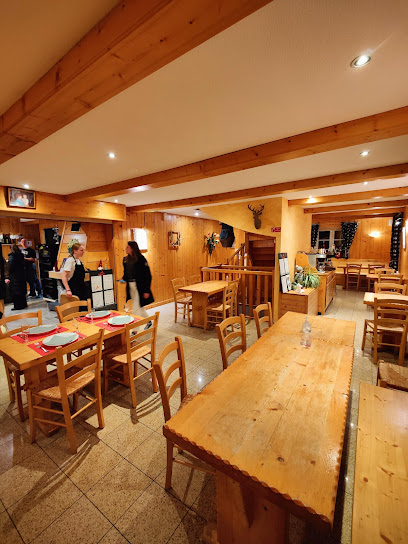
Le Chalet Du Lac Des Corbeaux
Experience authentic French cuisine at Le Chalet Du Lac Des Corbeaux amidst stunning lakeside views in La Bresse.
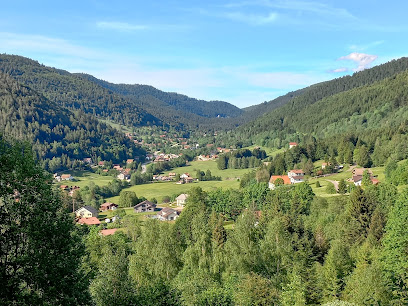
Auberge du Kastelberg
Experience authentic French cuisine amidst stunning Vosges mountain scenery at Auberge du Kastelberg in Alsace.
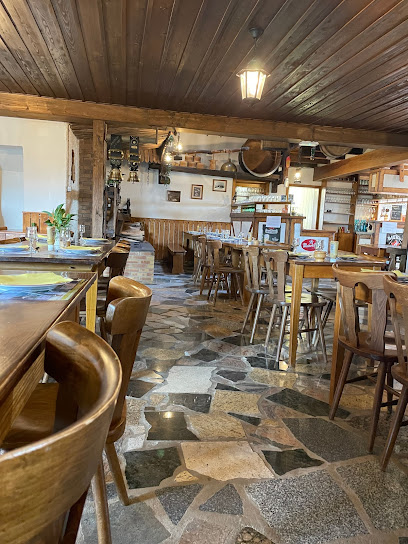
Ferme Auberge Breizhousen
Discover authentic French flavors at Ferme Auberge Breizhousen in La Bresse - where rustic charm meets exquisite cuisine.
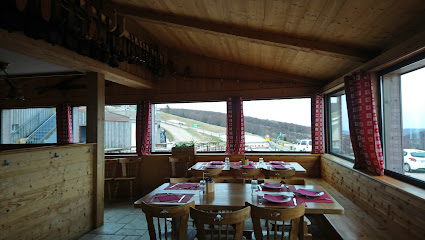
Auberge La Chaume de Schmargult
Discover the charm of Auberge La Chaume de Schmargult in La Bresse – where exquisite French cuisine meets stunning natural beauty.
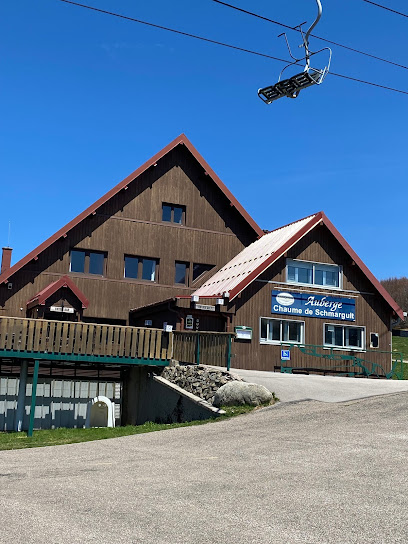
Hôtel - Restaurant Le Couchetat / La Bresse
Experience comfort and exquisite local cuisine at Hôtel - Restaurant Le Couchetat in the heart of La Bresse's breathtaking scenery.
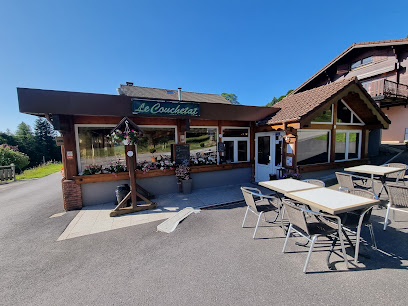
Auberge de la Chaume du Firstmiss
Experience authentic French cuisine amidst breathtaking mountain views at Auberge de la Chaume du Firstmiss in La Bresse.
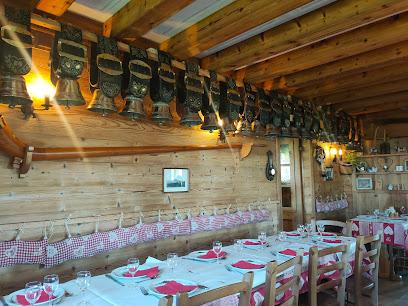
Auberge et Microbrasserie La Rételère
Discover authentic French cuisine and craft brews at Auberge et Microbrasserie La Rételère in scenic La Bresse.
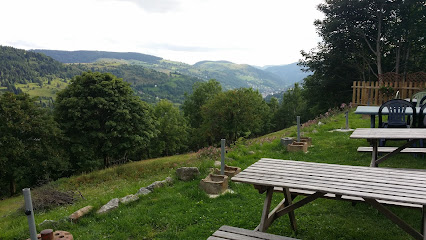
LE PAQUIS
Discover the culinary excellence at Le Paquis in La Bresse – where French flavors meet warm hospitality.
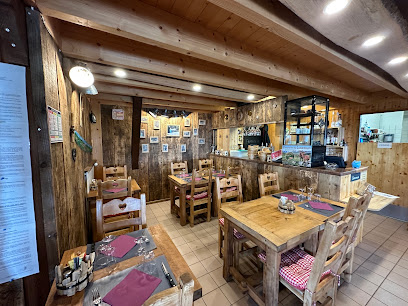
Auberge du Steinwasen
Experience authentic French cuisine at Auberge du Steinwasen in Metzeral - where culinary artistry meets stunning natural beauty.
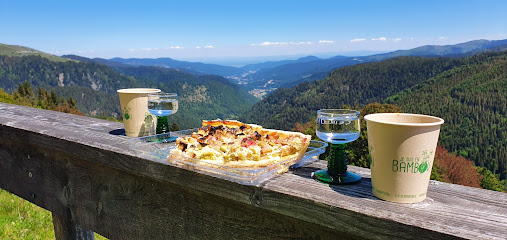
Restaurant Le bar à raclettes
Experience authentic alpine cuisine with melted cheese specialties at Restaurant Le bar à raclettes in scenic La Bresse.
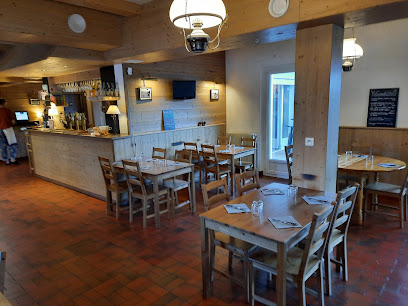
Markets, malls and hidden boutiques
LA CONFISERIE BRESSAUDE
Discover La Confiserie Bressaude, a captivating confectionery store in La Bresse, offering delicious sweets and unique factory tours for an unforgettable experience.
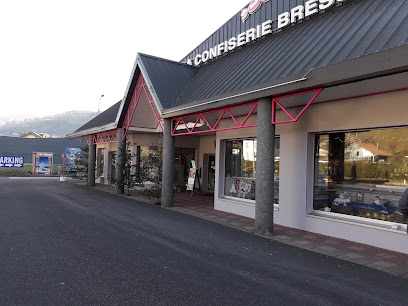
Pierres du Monde 88 Vosges
Explore the beauty of nature and craftsmanship at Pierres du Monde 88 Vosges, a unique rock shop and museum in the heart of the Vosges.
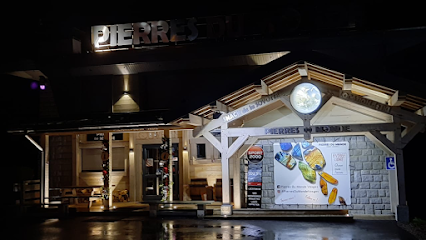
Green Mojo
Discover adventure and gourmet delights at Green Mojo in La Bresse, where outdoor fun meets local culinary excellence in a beautiful setting.
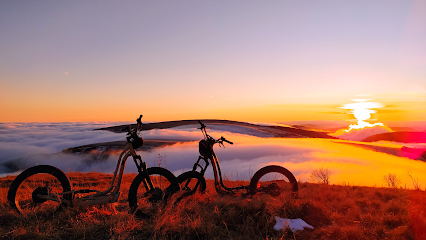
Action Gérardmer
Explore an eclectic mix of gifts, home goods, and DIY supplies at Action Gérardmer in the heart of the Vosges mountains.
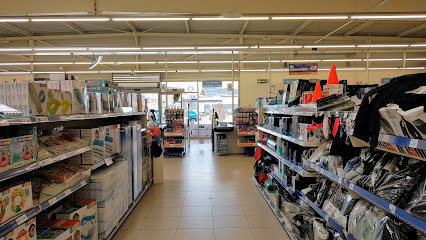
Le chalet des peluches
Explore the magical Le Chalet des Peluches in Gérardmer, where enchanting toys and thoughtful gift baskets await every visitor.
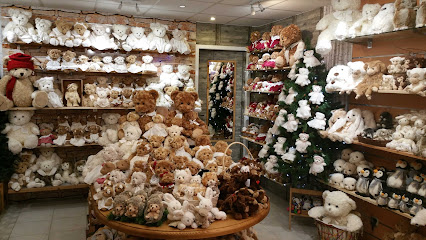
SPORTS PASSION
Explore La Bresse's outdoor wonders with SPORTS PASSION, your go-to spot for ski and bicycle rentals and sporting goods.
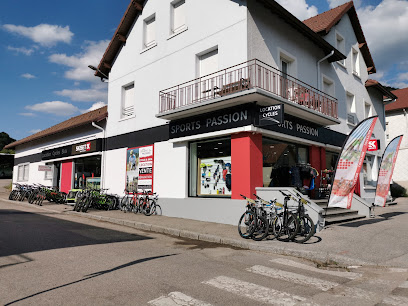
Jouets bois liezey
Explore the enchanting Jouets Bois Liezey, where handcrafted wooden toys celebrate creativity and heritage in the heart of Liézey, France.
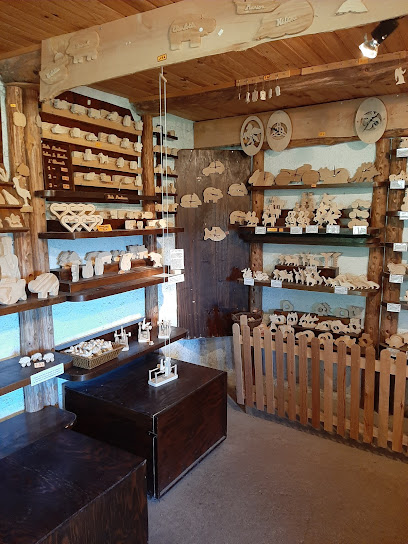
Ligne Verte - Linge De Maison
Explore the exquisite linens at Ligne Verte in Gérardmer – a treasure trove of quality textiles perfect for your home or as unique gifts.
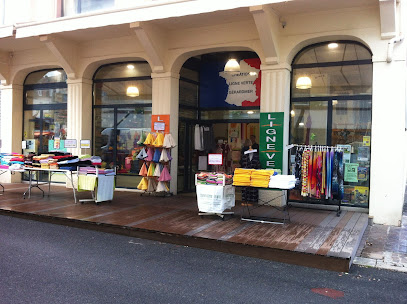
Alsace Boutique
Explore the charm of Alsace Boutique in Colmar, where local crafts meet exquisite gift selections in a delightful shopping experience.
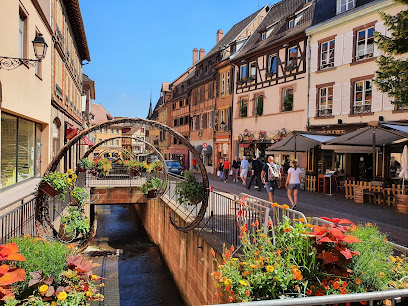
O2 Sports
Discover O2 Sports in Xonrupt-Longemer for exceptional sporting goods, bicycle rentals, and ski equipment in the heart of the Vosges mountains.

La corde à Linge
Discover a paradise of linens and fabrics at La corde à Linge in Gérardmer, perfect for home decor and creative projects.
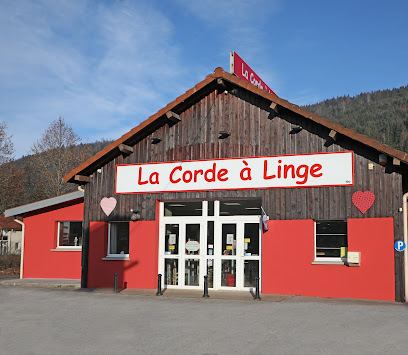
Passing through Lorraine
Explore the finest gourmet grocery store in Gérardmer, where the rich flavors of Lorraine await you with every visit.
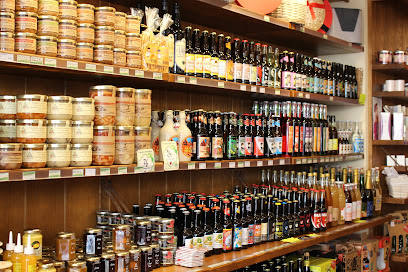
Na'tur Remiremont - Magasin de décoration
Explore Na'tur Remiremont for unique gifts and home goods that showcase local craftsmanship in a charming setting.
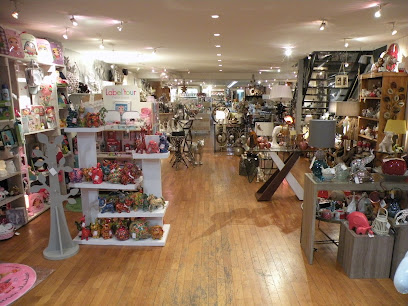
Altitude Sport Outdoor
Discover the ultimate outdoor gear at Altitude Sport Outdoor in Gérardmer, your gateway to adventure in the stunning Vosges mountains.
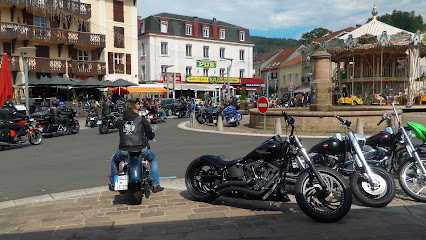
The North Face - Gérardmer
Discover exceptional outdoor gear at The North Face - Gérardmer, your ultimate destination for adventure in the heart of the Vosges mountains.
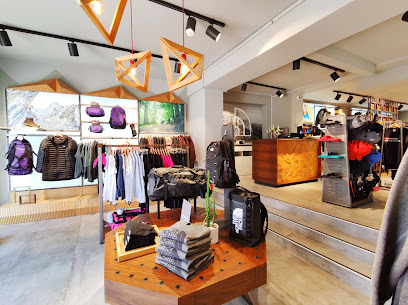
Essential bars & hidden hideouts
La Rhumerie
Discover La Rhumerie in Gérardmer, a cocktail bar offering a vibrant atmosphere and an extensive selection of unique rum-based drinks.
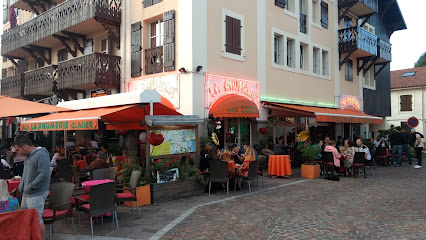
Auberge du Pied du Hohneck
Experience the best of French cuisine in the serene Vosges mountains at Auberge du Pied du Hohneck, a perfect getaway for food lovers.
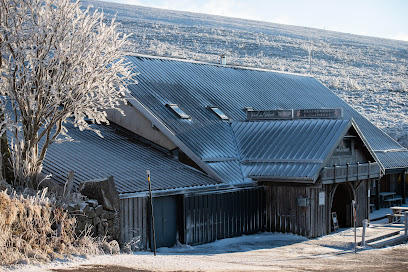
Restaurant Olac And Brewery Salon De Thé
Experience the best of French cuisine at Restaurant Olac in Gérardmer, where tradition meets taste in a charming setting.
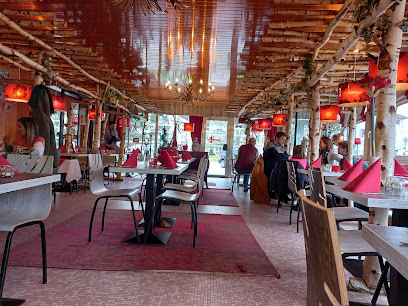
Bar Glacier Le Neptune
Discover Bar Glacier Le Neptune in Gérardmer, where delightful ice creams and local delicacies await in a charming alpine setting.
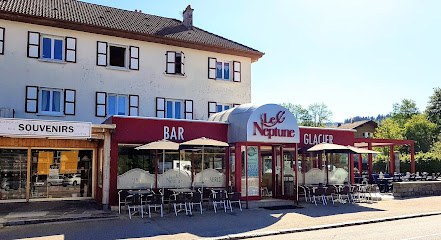
Le Den's Bar
Experience the charm of Le Den's Bar in La Bresse, where cozy ambiance meets delightful beverages amidst stunning Vosges mountain views.
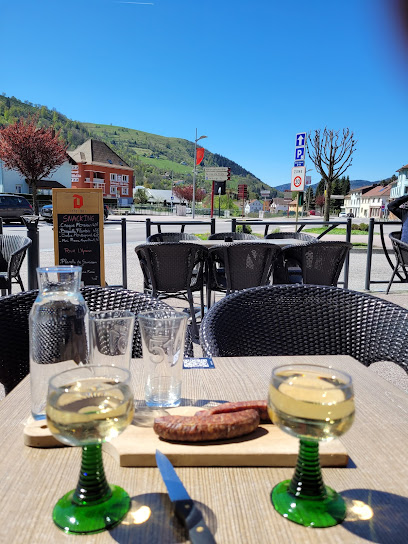
LS Bar
Discover the perfect blend of local charm and vibrant nightlife at LS Bar in Eguisheim, where every sip tells a story.
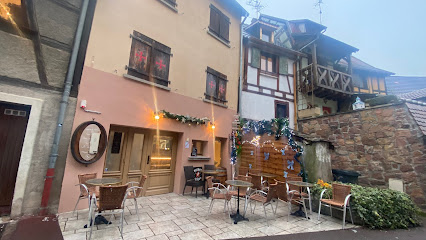
La Cabane au Darou
Discover La Cabane au Darou, a charming bar in Saint-Dié-des-Vosges, where delightful drinks and a cozy atmosphere await every traveler.
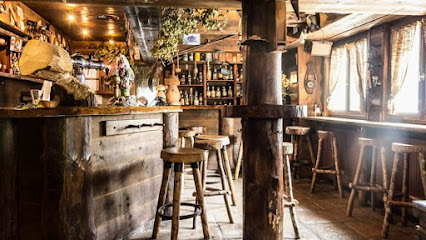
Bar la Ruelle
Experience the charm of Bar la Ruelle in Gérardmer, where delightful drinks meet a cozy atmosphere, perfect for unwinding after a day of exploration.
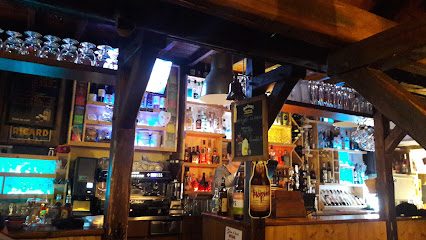
Bar LES TRAPPISTES
Experience the charm of Bar LES TRAPPISTES in Gérardmer, where great drinks and a cozy atmosphere await every traveler.
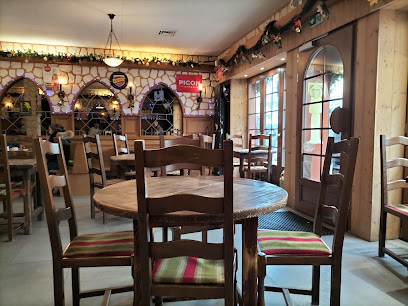
Le Rétro
Experience the charm of Le Rétro, a cozy bar in Gérardmer offering delightful drinks and a vibrant atmosphere for tourists seeking relaxation.
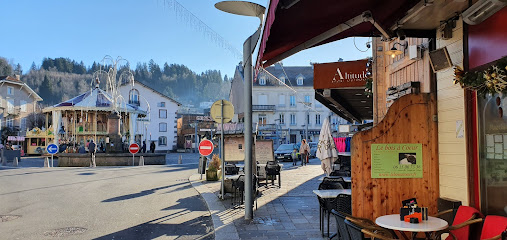
Le Little Pub
Experience the cozy ambiance and vibrant atmosphere of Le Little Pub in Remiremont, where great drinks and friendly faces await you.
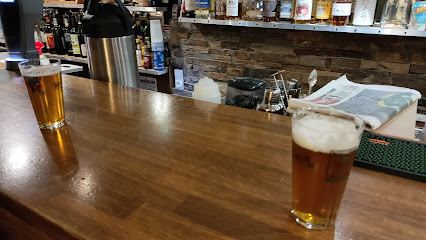
Le Grattoir
Discover the cozy charm of Le Grattoir in Gérardmer – a perfect bar for relaxation, local drinks, and vibrant atmosphere amidst Vosges’ beauty.
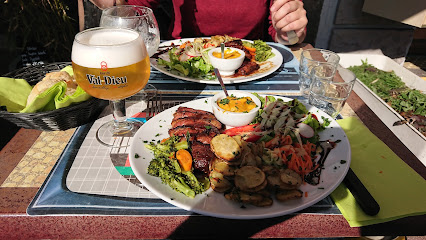
Le 1507
Experience the vibrant nightlife of Saint-Dié-des-Vosges at Le 1507, where local charm meets modern flair in a welcoming bar atmosphere.
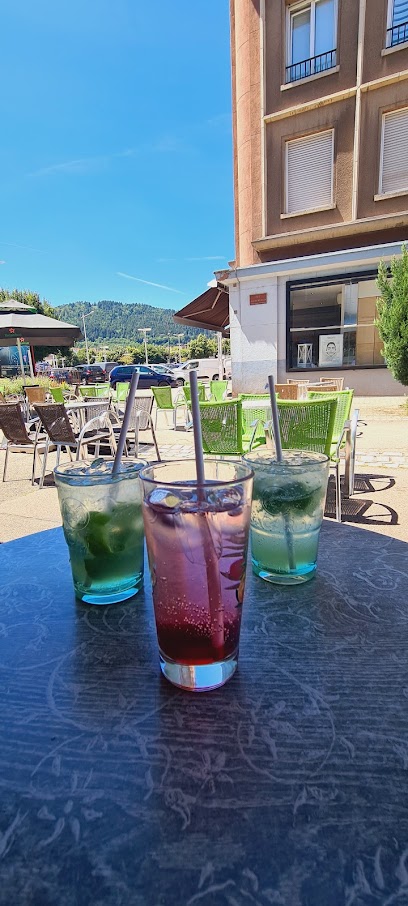
Duo Bar
Experience the heart of Remiremont at Duo Bar, where delightful drinks and a vibrant atmosphere await your arrival.
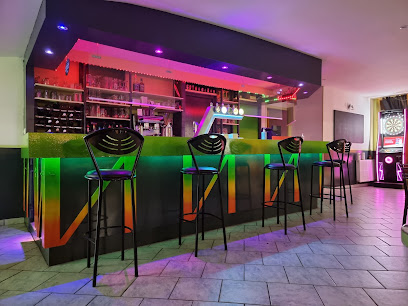
Local Phrases about Vosges Mountains
-
- HelloBonjour
[bon-zhoor] - GoodbyeAu revoir
[oh ruh-vwahr] - YesOui
[wee] - NoNon
[nohn] - Please/You're welcomeS'il vous plaît / De rien
[seel voo pleh / duh ryehn] - Thank youMerci
[mehr-see] - Excuse me/SorryExcusez-moi / Désolé
[ehk-skew-zay mwah / day-zoh-lay] - How are you?Comment ça va?
[koh-mohn sah vah] - Fine. And you?Bien. Et vous?
[byen. ay voo] - Do you speak English?Parlez-vous anglais?
[par-lay voo ahn-glay] - I don't understandJe ne comprends pas
[zhuh nuh kohm-prahnd pah]
- HelloBonjour
-
- I'd like to see the menu, pleaseJe voudrais voir le menu, s'il vous plaît
[zhuh voo-dray vwahr luh muh-nyuh, seel voo pleh] - I don't eat meatJe ne mange pas de viande
[zhuh nuh mahnzh pah duh vee-ahnd] - Cheers!Santé!
[sahn-tay] - I would like to pay, pleaseJe voudrais payer, s'il vous plaît
[zhuh voo-dray pay-ay, seel voo pleh]
- I'd like to see the menu, pleaseJe voudrais voir le menu, s'il vous plaît
-
- Help!Au secours!
[oh suh-koor] - Go away!Allez-vous en!
[ah-lay vooz ahn] - Call the Police!Appelez la police!
[ah-peh-lay lah poh-lees] - Call a doctor!Appelez un médecin!
[ah-peh-lay uh may-deh-sahn] - I'm lostJe suis perdu
[zhuh swee pair-doo] - I'm illJe suis malade
[zhuh swee mah-lahd]
- Help!Au secours!
-
- I'd like to buy...Je voudrais acheter...
[zhuh voo-dray zah-shet-ay] - I'm just lookingJe regarde juste
[zhuh ruh-gahrd zhust] - How much is it?Combien ça coûte?
[kohm-byen sah koot] - That's too expensiveC'est trop cher
[say troh shair] - Can you lower the price?Pouvez-vous baisser le prix?
[poo-veh voo beh-say luh pree]
- I'd like to buy...Je voudrais acheter...
-
- What time is it?Quelle heure est-il?
[kehl uhr ay-tee-l] - It's one o'clockIl est une heure
[eel ay tewn uhr] - Half past (10)Dix heures et demie
[dees uhr ay duh-mee] - MorningMatin
[mah-tan] - AfternoonAprès-midi
[ah-pray meed-ee] - EveningSoir
[swahr] - YesterdayHier
[yeer] - TodayAujourd'hui
[oh-zhoor-dwee] - TomorrowDemain
[duh-man] - 1Un
[uhn] - 2Deux
[duh] - 3Trois
[trwah] - 4Quatre
[kah-truh] - 5Cinq
[sank] - 6Six
[sees] - 7Sept
[sept] - 8Huit
[weet] - 9Neuf
[nurf] - 10Dix
[dees]
- What time is it?Quelle heure est-il?
-
- Where's a/the...?Où est un/le...?
[oo ay uhn/luh] - What's the address?Quelle est l'adresse?
[kehl ay la-dress] - Can you show me (on the map)?Pouvez-vous me montrer (sur la carte)?
[poo-veh voo muh mohn-tray (soor lah kart)] - When's the next (bus)?Quand est le prochain (bus)?
[kahn ay luh proh-shahn (boos)] - A ticket (to ....)Un billet (pour ....)
[uhn bee-yay (poor)]
- Where's a/the...?Où est un/le...?
History of Vosges Mountains
-
The Vosges Mountains have a rich history that dates back to the Celtic era. The region was originally inhabited by the Leuci tribe, a Celtic people. During the Roman conquest of Gaul, the Vosges became an important area for the Romans, who established several settlements and fortifications. The Romans utilized the region for its natural resources, including timber and iron.
-
In the Middle Ages, the Vosges Mountains were dotted with numerous castles and fortresses, built to defend against invasions. Notable among them is the Château du Haut-Koenigsbourg, which was constructed in the 12th century and later restored in the 19th century. The region was also home to many monasteries, such as the Abbey of Senones, which played a significant role in the spiritual and cultural life of the area.
-
The Vosges Mountains were significantly affected by the Thirty Years' War (1618-1648), a destructive conflict that ravaged much of Europe. The region saw numerous battles and skirmishes, and many of its villages and towns were devastated. The war led to a significant depopulation and economic decline in the Vosges, effects that were felt for many decades.
-
The 19th century brought significant economic changes to the Vosges Mountains with the advent of the Industrial Revolution. The region became a center for textile manufacturing, taking advantage of its abundant water resources to power mills and factories. Towns like Épinal and Gérardmer grew rapidly as industrial centers, bringing prosperity and modern infrastructure to the area.
-
The Vosges Mountains were a significant battleground during World War I. One of the most notable conflicts was the Battle of Hartmannswillerkopf, also known as the 'Vieil Armand,' a strategic peak fiercely contested by French and German forces. The battle lasted from 1915 to 1916 and resulted in heavy casualties on both sides. The site is now a national monument and war cemetery, commemorating the soldiers who fought there.
-
During World War II, the Vosges Mountains were again a theater of military operations. The region was occupied by German forces until it was liberated by the Allies in late 1944. The Battle of the Vosges was a crucial part of the liberation of Alsace, with American and French forces pushing through the rugged terrain to reclaim the region. The Vosges were also the site of numerous acts of resistance against the occupying forces.
-
In the post-war era, the Vosges Mountains have become a popular destination for tourists and nature enthusiasts. The region is known for its scenic beauty, with dense forests, rolling hills, and picturesque villages. Efforts have been made to conserve the natural environment, including the establishment of the Ballons des Vosges Regional Nature Park in 1989. The park aims to protect the biodiversity of the area while promoting sustainable tourism and outdoor activities.
Vosges Mountains Essentials
-
The Vosges Mountains are located in northeastern France. The nearest major airports are Strasbourg International Airport and Basel-Mulhouse-Freiburg Airport. From these airports, you can rent a car or take a train to reach the Vosges region. The TGV (high-speed train) connects Paris to Strasbourg, from where you can take regional trains or buses to reach various towns in the Vosges. Additionally, driving from Paris to the Vosges takes about 4-5 hours, depending on your destination.
-
In the Vosges Mountains, public transportation options include regional trains and buses, but renting a car is highly recommended for exploring the area at your own pace. Biking is also a popular mode of transportation, especially for outdoor enthusiasts. Within towns and villages, walking is often the best way to explore. Taxi services are available but can be limited in more remote areas.
-
The official currency in France is the Euro (€). Credit cards are widely accepted in hotels, restaurants, and shops in the Vosges Mountains. However, it is advisable to carry some cash, especially if you plan to visit smaller villages or local markets. ATMs are available in larger towns, but it may be wise to withdraw sufficient cash before venturing into more rural areas.
-
The Vosges Mountains are generally a safe destination for tourists. Standard precautions should be taken, such as avoiding walking alone at night in unfamiliar areas and keeping an eye on your belongings in crowded places. There are no specific high-crime areas targeting tourists, but it's always best to stay vigilant and aware of your surroundings.
-
In case of emergency, dial 112 for immediate assistance. Local police stations and medical facilities are available in the larger towns within the Vosges. It is recommended to have travel insurance that covers medical emergencies. Pharmacies are available in most towns where you can purchase over-the-counter medications for minor health issues.
-
Fashion: Do dress in layers and wear comfortable shoes suitable for hiking. Avoid wearing overly casual clothing in upscale restaurants. Religion: Do respect local customs and traditions, especially when visiting religious sites. Public Transport: Do validate your ticket before boarding trains and buses. Don’t eat or drink on public transport. Greetings: Do greet people with a simple 'Bonjour' (Good day) or 'Bonsoir' (Good evening). A handshake is a common form of greeting. Eating & Drinking: Do try local specialties such as Munster cheese and tarte flambée. Don’t forget to say 'Bon appétit' before starting your meal.
-
To experience the Vosges Mountains like a local, visit local markets to purchase fresh produce and regional products. Engage with locals, as they are often friendly and willing to share stories about the region’s history and culture. Don’t miss visiting traditional farms and tasting local wines. For a unique experience, explore the many hiking trails and enjoy the breathtaking views from the summits. Participating in local festivals and events can also provide an authentic experience.
Nearby Cities to Vosges Mountains
-
Things To Do in Freiburg
-
Things To Do in Basel
-
Things To Do in Strasbourg
-
Things To Do in Nancy
-
Things To Do in Bern
-
Things To Do in Zurich
-
Things To Do in Lucerne
-
Things To Do in Thun
-
Things To Do in Interlaken
-
Things To Do in Dijon
-
Things To Do in Lausanne
-
Things To Do in Vevey
-
Things To Do in Grindelwald
-
Things To Do in Murren
-
Things To Do in Montreux













